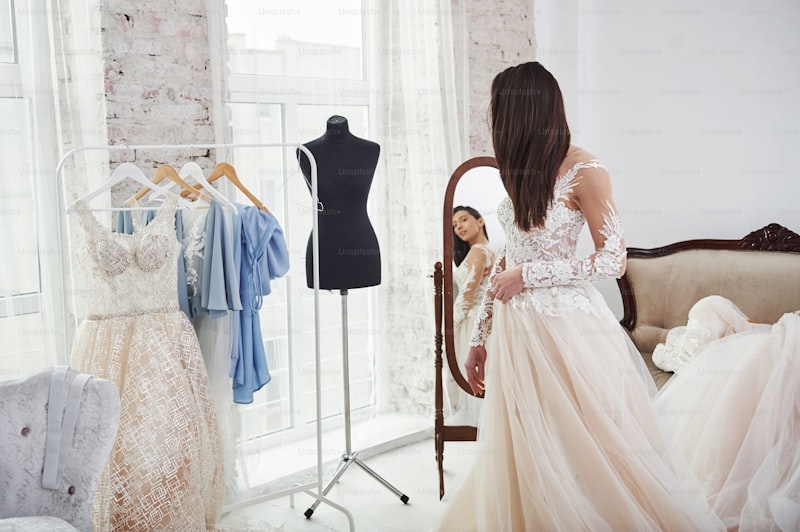Unlocking the Long-Term Value of Buying a Wedding Dress
The Timeless Investment: Understanding the Long-Term Value of Buying a Wedding Dress
When it comes to one of the most significant days in a person's life—wedding day—the choices made can resonate far beyond just a single event. The wedding dress stands as a focal point of this celebration, embodying dreams, emotions, and new beginnings. However, many brides-to-be often wonder about the long-term value of buying a wedding dress. Is it worth the investment? How should you approach this purchase to ensure both immediate and lasting rewards?
The Emotional and Financial Aspects of Wedding Dresses
Purchasing a wedding dress transcends mere financial expenditure; it serves as a heartfelt choice that reflects style, personality, and the essence of love. Understanding both the emotional and financial value is key to making an informed decision.
Emotional Connection
For many, the wedding dress symbolizes dreams and aspirations. It acts as a canvas where personal style meets cultural significance. As you try on dresses, you might experience feelings of nostalgia and joy, knowing that this dress will be a part of your cherished memories. An emotional connection elevates the value of the dress beyond its price tag.
Financial Investment
While emotional aspects are crucial, it's essential to assess the financial implications of purchasing a wedding dress. Wedding dresses can range widely in price, from affordable options to high-end designer pieces. Here's a quick overview:
| Price Range | Description |
| Under $500 | Ready-to-wear options and simpler designs, often found at department stores or online retailers. |
| $500 - $1500 | Mid-range dresses, including some designer labels and boutique options. |
| $1500 - $5000+ | High-end designer dresses, custom pieces, and luxury fabrics. |
Resale Value: A Smart Consideration
One of the most important considerations when buying a wedding dress is the potential for resale. Many brides are surprised to learn that wedding dresses can hold significant resale value. A well-maintained dress in good condition can be sold for 50% or more of its original purchase price, depending on demand, brand reputation, and style. Factors influencing resale value include:
- Condition: A dress that has been professionally cleaned and preserved maintains higher value.
- Brand: Designer gowns from reputable brands often attract higher prices.
- Timelessness: Classic styles remain desirable over time, whereas trends may fade quickly.
How to Maximize Resale Value
To ensure the best possible resale value, consider these strategies:
- Choose a classic or timeless design that won't go out of style.
- Properly maintain your dress; consider professional cleaning and storing it in a suitable manner.
- Keep original tags and any accompanying accessories, as they can enhance value.

Alternatives to Buying New
If the financial aspect of purchasing a wedding dress feels overwhelming, there are plenty of alternatives to consider:
- Renting a Dress: For brides who prioritize spending less or simply want a dress for the day, renting can be an ideal solution.
- Second-hand Dresses: Many brides sell their dresses online or through bridal consignment stores at reduced prices, allowing you to snag a designer dress for much less.
- Custom-made Dresses: Collaborating with a local designer may yield a beautiful dress at a competitive price, and you'll have something uniquely tailored for you.
The Importance of Timing Your Purchase
Timing can significantly influence the purchase process. Here are some tips on when to buy your wedding dress:
- Start Early: As a general rule, begin your search at least 6 to 12 months ahead of your wedding date. This allows for alterations and adjustments.
- End of Season Sales: Consider shopping during off-peak seasons or during bridal expos for potential discounts.
Don’t Forget the Budget
Establishing a realistic budget is crucial. Allocate funds not only for the dress itself but also for alterations, accessories, and possible cleaning or preservation post-wedding. A common approach is to reserve about 10-15% of your total wedding budget for your dress.
Sustainable Choices in Wedding Dress Purchases
Increasingly, brides are becoming conscious of sustainability and ethical practices in their wedding planning. Eco-friendly wedding dresses not only reduce waste but also often come from brands that prioritize social responsibility. Consider the following:
- Second-hand Options: Buying pre-loved dresses is a fantastic way to promote sustainability while saving money.
- Eco-friendly Fabrics: Look for dresses crafted from organic, recycled, or sustainably sourced materials.
Summarizing the Long-Term Value of Buying a Wedding Dress
In conclusion, the long-term value of buying a wedding dress extends beyond what meets the eye. A wedding dress embodies emotional significance, has potential resale value, and can even foster sustainable choices in wedding planning. If chosen thoughtfully, it can weave a beautiful narrative that lasts a lifetime, from the moment you say "I do" to future generations who may admire your timeless style in family photographs.
As you embark on this exciting journey, remember to reflect on what this dress means to you, prioritize financial considerations, and always have fun exploring options. Ultimately, your wedding dress should not only signify beauty but also represent your unique story.